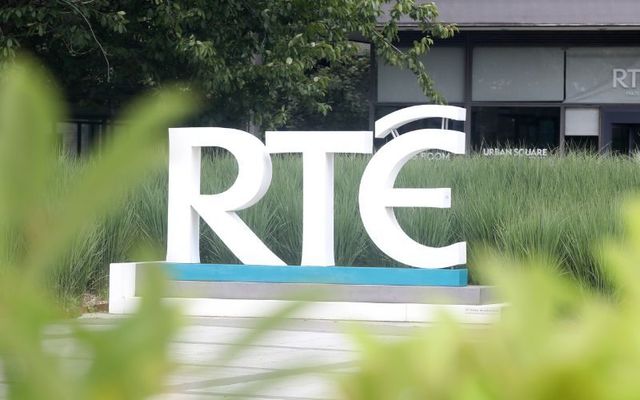As a transplanted Yank familiar with the TV scene on both sides of the water, I might have a way to help relieve RTÉ's operational deficit.
Like most Bostonians, I grew up with an unquestioned reverence for Channel 2, my hometown's Public Broadcasting Service affiliate. This was real television (or so I believed, even as I enjoyed the lesser offerings of the three primary networks), motivated in the main to educate and instruct us through its honest and dependable, if somewhat earnest, programming.
If PBS also served to entertain and amuse us on occasion – as it did in the early 1970s when it brought in "Monty Python’s Flying Circus" – that was a happy coincidence, producing countless first-generation Pythonians such as myself.
These days, owing to its meager and uncertain government funding – donation drives are a regular occurrence on its radio and TV platforms – PBS, like RTÉ, is a far from robust broadcaster.
Using Boston's PBS outlet as a reliable indicator, the daytime TV schedule features a predictable line-up of well-intentioned children’s programs while the evening shows are a tired mix of travelogues and low-budget home renovation and cooking shows, with the added dash of a worthy documentary. (In fairness, "American Masters," "American Experience," "Frontline," and "Nova" are regularly excellent.)
As far as I'm aware, PBS doesn't have the wherewithal to commission any original drama, necessitating the purchase of assorted BBC and ITV shows such as "Downton Abbey," "Poldark," "Mr. Selfridge," and "The Fall," many under its prestigious Masterpiece umbrella – which in my day, as Masterpiece Theatre, was introduced by Alistair Cooke and specialized in British period dramas.
Likewise, no US comedian or sitcom writer worth their funny bone would dream of pitching a pilot series to PBS. Despite an abundance of native comedic talent on which to draw, it just isn’t in public broadcasting’s rather earnest DNA to encourage laughter. (Much the same criticism has been leveled at RTÉ.)
No gratuitous offense is intended, but with cable outlets and streaming services now challenging and surpassing the traditional networks in the quality of their shows and documentaries, PBS is at risk of appearing irrelevant, of niche interest to a dwindling audience – a fate that might well befall RTÉ if the money dries up.
This is why RTÉ potentate Kevin Bakhurst needs to explore his options in the relatively-untapped US market. RTÉ already has a 50% stake in GAAGO, which, in its original form, provided hurling and Gaelic football matches to the diaspora, so it's reasonable to take the next step and serve up the network's current and archival programming for foreign consumption, perhaps using BritBox, an online digital video subscription service founded by BBC Studios and ITV, as its model.
As for which programs RTÉ might include in its pitch to PBS: In my opinion, Irish hotelier Francis Brennan would be an absolute star in the US – at least among PBS viewers. Francis and his brother John have produced 12 series of "At Your Service," dating back to 2008, in which they help restore ailing guesthouses, small hotels, and B&Bs. I've no doubt a sizable number of Yanks would tune in to "AYS" – and thus open a vast new market for Brennan's books and other merch, with RTÉ getting its cut of course.
But my list of programs attractive to a US audience doesn't end there. In fact, I've drawn up a full A4 sheet of potential hit shows from the RTÉ website, such as the bounty there. John Creedon's various programs, for example, would attract a substantial US viewership – again according to my inexact estimation – and might indeed propel him to a sort of semi-stardom in the PBS sphere.
On the historical front, I found "The Irish Civil War" and "The Hunger," as well as "Gunplot" and "Cold Case Collins" with former State Pathologist Dr. Maire Cassidy. (Two seasons of "Dr. Cassidy's Casebook" are also available for distribution to US viewers.) On a lighter note, "How Ireland Rocked the 70s" caught my attention, as did "Back to Barrytown," fronted by Colm Meaney, a familiar face in the US due to his years of service on the Starship Enterprise.
And everyone loves a gritty crime drama, which puts Dublin-based "Love/Hate" and "Kin" in the running – provided well-formatted subtitles are part of the package.
RTÉ has an impressive catalogue of shows worthy of any broadcaster in the world. Peddling them to PBS won't remedy all of RTÉ's difficulties, but it might restore a measure of prestige and confidence to Ireland's national broadcaster.
*Boston native Steve Coronella has lived in Ireland since 1992. He is the author of three essay collections and a comic novel, "Designing Dev," set in Celtic Tiger Ireland.
This article was submitted to the IrishCentral contributors network by a member of the global Irish community. To become an IrishCentral contributor click here.




Comments